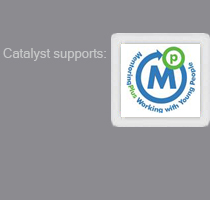
A new Accelerator programme launched by entrepreneur and CEO of Hamilton Bradshaw, James Caan, is offering first class business support and access to multi-million pound funding for the UK’s most innovative green entrepreneurs.
The Berti Green Accelerator programme, supported by James Caan’s Hamilton Bradshaw Impact Partners (HBIP), is searching for three successful low carbon businesses to award six months of first-class business support from HBIP and the opportunity to receive funding of up to £1million each from Berti Investments.

Whilst UK economic growth has substantially slowed since 2008, venture capital investment into the UK’s cleantech sector increased in 2011 for the sixth year in a row, to over £350million. With considerable work still to be done to reach 2020 carbon reduction targets, significant opportunities lie ahead for green entrepreneurs.
Berti Investments believes the low carbon sector can drive impactful growth that serves a triple bottom line: profit, people and planet, but green entrepreneurs need access to the right kind of business support and finance in order for this to happen.
The Berti Green Accelerator programme is open to any conceptually good, low carbon UK business with growth potential and a proof of concept. The three successful businesses will have to demonstrate that their business aims to tackle climate change by sustainably reducing carbon emissions.
James Caan, founder and CEO of Hamilton Bradshaw said:
“The Berti Green Accelerator programme has been developed by Berti Investments and HBIP following a shared commitment to making a difference through impact investing. The programme combines my desire to seek out and support potential high growth businesses with my interest in impact investing.
“The impact investing market place is growing, but many entrepreneurs struggle to become investment ready due to lack of experience or knowledge about certain aspects of their business, such as financial or operational know-how. The Berti Green Accelerator programme tackles this by blending bespoke business support with access to capital. It’s what we call intelligent capital.”
Jeremy Leggett, Berti Green Accelerator judge and founder and Chairman of Solarcentury said:
“Renewable and energy efficiency technologies will have to replace fossil fuels far faster than most people currently anticipate. In the UK, we have the potential to source all of our primary energy from renewables, such and solar photovolatics, wind and marine technologies, but to do this we need an explosive growth in all renewable and energy efficient technology markets.
“The UK needs fast-growing domestic renewable energy businesses more than ever, and programmes like the Berti Green Accelerator, that provide investment and support for cleantech businesses, are vital for encouraging growth and stimulating this sector.”

Applications for the fund are now open with a closing date of 17th April 2012. Shortlisted candidates will pitch to a Dragons’ Den style panel of judges including James Caan, Jeremy Leggett (Founder and Chairman of Solarcentury), Michael Liebreich (Founder and Chief Executiveof Bloomberg New Energy Finance) and Jacques Tredoux (Berti Investments).
 There is much discussion at the moment about the Banks not willing to lend to SME’s. Government has proposed to help SME’s by subsidising loans to the tune of £20 billion. This will reduce the interest rate on loans made by participating banks by 1%. Is this likely to stimulate the SME economy?
There is much discussion at the moment about the Banks not willing to lend to SME’s. Government has proposed to help SME’s by subsidising loans to the tune of £20 billion. This will reduce the interest rate on loans made by participating banks by 1%. Is this likely to stimulate the SME economy?




